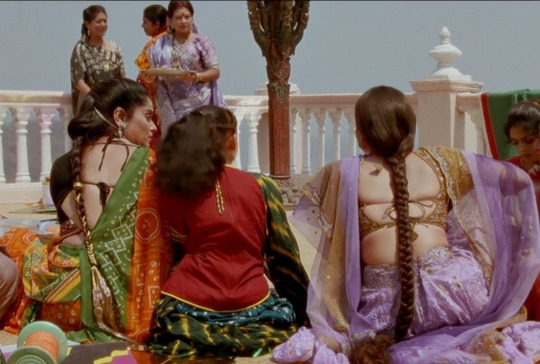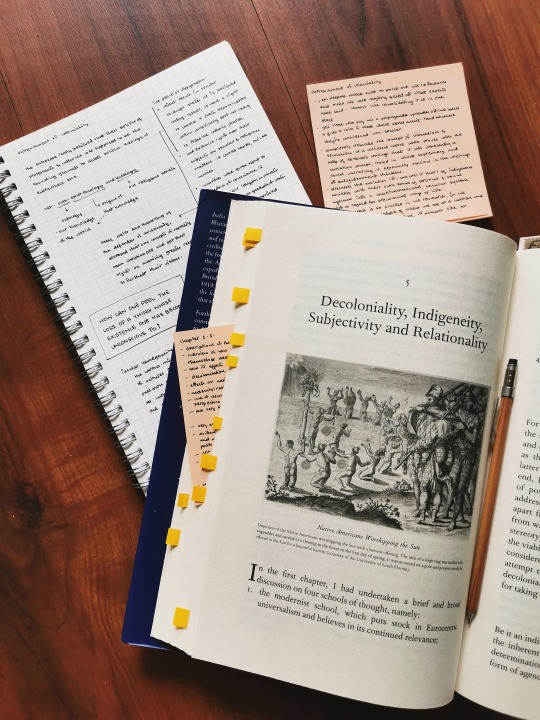#Indian literature
Explore tagged Tumblr posts
Text


female friendships are so precious and beautiful. sisterhood is so inherent in women. there is a life force where many women are sitting together and conversing. their giggles reverberates through the deepest chambers of the even the coldest of hearts & softens them. when they take care of each other together from oiling their hair turn by turn by to putting henna on each other’s palms, everything is a sacred offering to some source unseen; but only felt. they spend hours talking about things unfathomable from the basis of love to the state of the world, the soul, beauty, last, present & future & many other philosophies. because when they’re sitting in a room together that’s where they’re easily allowed to ‘be’. here, they aren’t someone being smothered by alotted identities. they aren’t just someone’s sister or daughter or even lover, but just humans trying to make the most out of their freedom to breathe.
#desi tumblr#desiblr#desi tag#desi aesthetic#poetry#poets corner#indian dark academia#desi culture#desi poetry#desi stuff#desi moodboard#desidarkacademia#desi dark academia#old bollywood#desi things#indian tumblr#shayari#desi writers#indian writers#indian literature
731 notes
·
View notes
Text


early morning reading on 16th century maratha empire
#bookblr#studyblr#desiblr#indian academia#indian literature#dark academia#indian history#light academia#books#honey lemon#notes#digital notes#book blog#study blog#studyspo#maratha empire
2K notes
·
View notes
Text

My Bengali trans queer debut poetry collection There Used to Be a Lake Here Once was mentioned for the 2024 Pride Collection of Writers Workshop, an Indian independent publishing house. In this list, my book is featured alongside some of my greatest poetry inspirations– the works of Suniti Namjoshi, Agha Shahid Ali, Hoshang Merchant.
If you want to support Indian queer voices, small literary press, trans poetry or just read about growing up in Kolkata as a queer kid in the 2000s, you can buy my book here.
#mimiwrites#lake tag#pride month#pride 2024#lgbtq authors#queer books#lgbtq#desi pride#queer desi#desiblr#bengali#desi academia#trans authors#trans poetry#trans#bisexual#sapphic books#bisexual books#sapphic#indian literature#literature#poetry#poets of tumblr#my writing#heh
118 notes
·
View notes
Text
The world of Premchand's female characters..
This is the strong aspect of Premchand literature.

To understand Premchand's creative vision, it is necessary to look deeply at his philosophy of women. Of his approximately 300 stories, a hundred are on women's life, while not more than 50 are on the rural environment. The role of female characters in his novels is also not less. There are strong female characters in every novel. Among his female characters, Suman, Sukhda, Nirmala, Jalpa, Dhaniya, Malti etc. cannot be forgotten.
Premchand's women society is Shatarupa. It contains heart-touching stories of human relationships. In his profuse female characters, glimpses of relationships like girl, young woman, girlfriend, wife, mother, sister, friend, daughter-in-law, widow, sister-in-law, prostitute etc. will be found, in which their independent personality has been lost and women have become the embodiment of exploitation, slavery and submission. Yes, but this is one aspect of his women's philosophy. Nirmala in his literature
('Nirmala' novel)

Live and die the most painful life, but all the female characters are not destitute and slaves of men, rather these women challenge male authority, refuse to accept their husband as God and are active participants in procreation and Swaraj movement. Women will be found.
Premchand depicts the traditional form of woman in his literature. It reveals the poignant nature of her being a woman and her compulsion to live with the problems and tortures of family life and creates a modern sense of self-consciousness in her. It is written about Malti of 'Godaan' that she was a butterfly from outside and a bee from inside. There is a collection of modern woman's values in her butterfly and traditional feminine values in her bee.

To understand their women's issues, it is important to know and understand Dhaniya and Malti.
Is. This modernity in Premchand's women's thinking is not from the Western women's movement, but is the contribution of Arya Samaj. He was a member of Arya Samaj and was associated with its reform movement. Along with this, they consider protection of sexual purity and chastity of women as paramount. Premchand creates high level human ideals (sexual purity and chastity along with service-sacrifice, motherly love, sacrifice, motherhood, creation of family, active for national goals) and consciousness of self-realization in the female characters. These women have the ability to take a man to divinity ('mystery' story). In 'Godaan', Mehta says, 'Woman is as superior to man as light is to darkness. Forgiveness, sacrifice and non-violence are the highest ideals of life for humans. Woman has achieved this ideal.
Premchand does not want to break the family. Although his story 'Bade Ghar Ki Beti' is famous, he also gives it a modern form. They talk about the use of artificial methods for family planning and limiting the family to two children and its rights, monogamy, man's right over property, divorce and woman's right to half the property.

In his writings, Premchand brings the Indian woman equal to the man and writes that the man should give up the madness of ruling over the woman, otherwise they will remain in their own rights. They should have equal rights and the decision should be left to them only.
In this way Premchand establishes the condition and direction of Indian women and becomes the father of women's discussion. Her women's thinking becomes the foundation of independent India and women get many rights.
Source - kkgoyanka
#indian literature#hindi story#hindi literature#desiblr#desi girl#desi tumblr#being desi#desi tag#desi aesthetic#desi#desi academia#indian artist#indian writers#novelist#women empowerment#desi women#indian#indian aesthetic#indian history#literature#munshi premchand#indian novel#female#female protagonist#desi feminine#femininity
91 notes
·
View notes
Text
List of Telugu learning Resources
Writing
Script: about, history and development, impact of writing tools in its evolution
Alphabet: multibhashi, wikipedia, wikibooks, edzym
Reading
Textbook: intensive course (archive.org), ncert school books, ap scert school books, ts scert school books, hindi-telugu praimaru, grammar (written in telugu)
Prose: kids’ stories, stories, collected manuscripts, parikini, soundaryalahari, barrister parvateesam, history, translated quran,
Poetry: kinnerasani patalu, movie songs book, maha prasthanam, tyagaraja kirtanalu
Blog/Misc: chandamama kathalu magazine, kavithalu, saaranga magazine, hasam magazine, bharati magazine, swathi weekly, sakshi news
Dictionaries: andhrabharati, tel-eng by sankaranarayana, eng-tel by venkatacharyulu, tel-eng by percival, tel-sans, hin-tel.
Vocabulary
MyLanguages
MeaningInHindi
1000MostCommonWords
proverbs: sametalu (written in telugu)
Grammar
malik’s absolutely goated guide
praveen ragi
vakyam (written in telugu)
Apps
Mango
Multibhashi (android)
HelloTalk
Dasubhashitam (android)
Learn Spoken Telugu From English (android)
Websites
Languages Home
Goethe-Verlag
LearningTelugu
Learn 101
Desi Bantu
YouTube - Native
Telugu teachers: telugu vanam, teach me telugu, pr learning hub,
Beginner level/Kids content: koo koo tv, jum jum tv, paa paa tv, horror planet
General: permit room, sumakka, chai bisket, naa anveshana, my vilage show, ragadi, chitra alochana, thyview, mahathalli, vikramaditya, yevarra meerantha, aye jude, dhethadi, chari not sorry
YouTube - Learners
Mexico: Christina
USA: Kari, Isaac Richards, Manasa (Danya), Omar Crockett
Italy: Franchesca /Telugutalian
Denmark: BigAReact
Poland: Zbigsbujji Chetlur
Sweden: Karl Svanberg
Online Keyboards
lexilogos
typingbaba
branah
gate2home
#telugu langblr#telugu#langblr#language study#masterlist#literature#indian literature#poetry#language history#etymology#language#langblog#language community#desi academia#indian languages#south indian
71 notes
·
View notes
Text
To me there’s something deeply intimate about it—when a man gifts you jhanjar (anklets/payal) and doesn’t just hand them over but kneels to secure them around her feet. It’s such a small thing, yet it lingers, a silent promise of care and to stand by her. A tender claim that whispers, "she is mine," with every step she takes.
#spilled thoughts#writers on tumblr#writing#literature#reading#poetry#indian literature#anklet#spilled poetry#spilled words#my thougts#my words#words#prose#love#thoughts#jaun elia#ahmad faraz
25 notes
·
View notes
Text
All writers were very good at remembering details of their lives.
Swimming Lessons by Rohinton Mistry
#dark academia#poetry#books#literature#poem#love#light academia#love quotes#writers and poets#home#indian literature
25 notes
·
View notes
Text


"High Tea at the Kapurs" by Karuna Ezara Parikh
#karuna ezara parikh#high tea at the kapurs#casteism#caste#anti caste#indian literature#indian poetry#desi tumblr#desiblr#desi academia#desi tag#indian academia#poetry#literature
53 notes
·
View notes
Text
Hey Guys I made this Story that's based on The Ancient Indian Tale of Prince Rama and Princess Sita and the Ten Headed Demon Ravanna but I made it different with the Characters like: Prince Mordecai and Princess Samantha, Ravanna, Hanuman, Bharata, Indrajit, Manthara, Surpanakha, Queen Kaikeyi (Prince Mordecai's Jealous Stepmother)




THE STORY OF MORDECAI AND SAMANTHA:
Once upon a time, in the magnificent kingdom of Ayodhya, there lived a noble prince named Mordecai, beloved by all for his wisdom, courage, and kindness. He was the heir to the throne, destined to rule alongside his beloved wife, Princess Samantha, a woman of unparalleled beauty, grace, and compassion. Their love was the envy of all who beheld it, and their kingdom flourished under their benevolent rule.
However, their happiness was not to last, for lurking in the shadows was the wicked ten-headed demon, Ravanna, whose heart burned with jealousy and malice. Ravanna coveted Princess Samantha for himself, and he plotted to separate her from Prince Mordecai and claim her as his own.
Mordecai: "My dear Samantha, our love is like the eternal flame, burning bright amidst the darkness. Fear not, for I shall always protect you, my beloved."
Samantha: "Oh Mordecai, my heart sings with joy at your words. Together, we shall overcome any obstacle that dares to challenge our love."
One fateful day, as Prince Mordecai and Princess Samantha were taking a leisurely stroll through the enchanted forest that surrounded their kingdom, they came across a wounded deer lying in agony. Princess Samantha's compassionate heart was moved with pity, and she beseeched Prince Mordecai to help the poor creature.
Samantha: "Mordecai, look! A wounded deer lies in distress. Please, we must help it."
Mordecai: "Fear not, my dear Samantha. I shall use my magic to create a protective circle around you. As long as you stay within its bounds, no harm shall befall you."
That night, as Princess Samantha rested within the safety of the magic circle, she heard a terrible cry echoing through the forest. Believing it to be her beloved Mordecai in grave danger, she rushed to his aid, unaware of the treacherous trap that awaited her.
Samantha: "Mordecai! I hear cries of distress! I must go to him at once!"
Mordecai: "No, Samantha! Stay within the circle! It is not safe!"
But it was too late. Ravanna, with his dark magic and deceitful wiles, had disguised himself as Prince Mordecai and lured Princess Samantha out of the protective circle. Seizing her in his powerful grasp, Ravanna vanished into the depths of the forest, leaving behind naught but despair and heartache.
Ravanna: "Foolish princess, to trust in the illusion of safety. Now you are mine, and no one shall stand in my way."
Prince Mordecai, upon discovering his beloved Samantha missing, was consumed with grief and fury. Determined to rescue her from the clutches of the vile Ravanna, he embarked on a perilous journey, aided by his loyal companions, including the mighty monkey warrior Hanuman, the valiant prince Bharata, and the wise sage Vishwamitra.
Hanuman: "Fear not, Prince Mordecai, for I shall lend you my strength and my cunning. Together, we shall vanquish the foul demon Ravanna and rescue Princess Samantha from his grasp."
Bharata: "My lord, I pledge my sword and my loyalty to your cause. Let us march forth and bring justice to the wicked."
Vishwamitra: "Prince Mordecai, the path ahead is fraught with danger, but with courage and determination, you shall prevail. Trust in your heart, and victory shall be yours."
And so, Prince Mordecai and his companions embarked on a perilous quest, braving treacherous jungles, raging rivers, and dark caverns in their relentless pursuit of Ravanna and his captive, Princess Samantha.
Along the way, they encountered many trials and tribulations, including battles with Ravanna's fearsome minions, such as his son Indrajit, the demoness Surpanakha, and the wicked maid Manthara, who sought to thwart their noble quest at every turn.
Indrajit: "You dare to oppose my father, Ravanna? Prepare to face the wrath of Indrajit, the mighty warrior prince!"
Surpanakha: "Ah, Prince Mordecai, how handsome you are! Why waste your time on that insignificant princess when you could have a powerful demoness like me at your side?"
Manthara: "Princess Samantha is a threat to my mistress's ambitions. I shall do everything in my power to ensure that she remains in Ravanna's clutches forever."
But through courage, perseverance, and the power of their unwavering love, Prince Mordecai and his companions overcame every obstacle that stood in their way, drawing ever closer to their ultimate goal of rescuing Princess Samantha from the clutches of Ravanna.
At long last, after a fierce and epic battle that shook the very foundations of the earth, Prince Mordecai confronted Ravanna in his fortress atop the towering mountain of Lanka, where Princess Samantha was held captive.
Mordecai: "Ravanna, your reign of terror ends here and now! Release Princess Samantha, or face the wrath of a righteous prince!"
Ravanna: "Foolish mortal, you dare to challenge me? I am Ravanna, the Lord of Lanka, the most powerful demon in all the realms! You are no match for my might!"
But Prince Mordecai, fueled by his love for Princess Samantha and the strength of his noble heart, fought with a courage and determination that knew no bounds. With the aid of his allies and the blessings of the gods themselves, he clashed with Ravanna in a battle that shook the heavens and the earth.
In the end, it was not the strength of arms or the power of magic that determined the outcome, but the purity of Prince Mordecai's love and the righteousness of his cause. With a final, mighty blow, he vanquished Ravanna and rescued Princess Samantha from the darkness that had ensnared her.
Mordecai: "Samantha, my beloved! Are you hurt? Fear not, for you are safe now, and I shall never let harm befall you again."
Samantha: "Mordecai, my hero! Oh, how I have longed for this moment! With you by my side, I fear nothing, for our love is stronger than any magic or malice in the world."
And so, Prince Mordecai and Princess Samantha returned triumphantly to their kingdom of Ayodhya, where they were greeted with jubilation and celebration by their grateful subjects. Their love had been tested and proven true, and together, they ruled wisely and justly for many years to come, a shining beacon of hope and inspiration to all who beheld them.
THE END!!
I Hope you guys liked it 😊🥰
For: @fxe4596 , @nicomxm23 , @mordorigs , @jgquintelslut , @pinkcandycatmakesart , @anifaz , @isrrael120 , @notadumbdog , @martingeekermmd , @eeveepalooza , @apollothedeity, @sidoresca, @siinhorhy, @insomniacz, @rhyliethecaterfly , @yeetafry, @at-weeb96, @kiwithekool11437, @kiko2032, @orchestralauthor, @untitled14360, @loudlyhappycupcake
#samantha 80ssuperstar#samantha feliciano#samanthafeliciano#samantha 80s superstar#80ssuperstar#regular show#regular show fanart#mordecai#mordecai regular show#regular show mordecai#jg quintel#india#india stories#ancient india#Ancient Stories#fantasy#indian#india love#indian literature#ancient cultures#make believe#stories#story#fan story
65 notes
·
View notes
Text
दिमाग़वाली स्त्री से प्रेम
आसान नहीं होता
दिमाग़वाली स्त्री से प्रेम करना, क्योंकि उसे पसंद नहीं होती जी हुजूरी,
झुकती नहीं वो कभी जब तक न हो रिश्तों और प्रेम की मजबूरी।
तुम्हारी हर हां में हां और न में न कहना वो नहीं जानती, क्योंकि उसने सीखा ही नहीं झूठ की डोर में रिश्तों को बांधना।
वो नहीं जानती स्वांग की चाशनी में डुबोकर अपनी बात मनवाना, वो तो जानती है
��ेबाकी से सच बोल जाना।
फिजूल की बहस में पड़ना उसकी आदतों में शुमार नहीं, लेकिन वो जानती है तर्क के साथ अपनी बात रखना।
वो क्षण-क्षण गहने-कपड़ों की मांग नहीं किया करती,
वो तो संवारती है स्वयं को आत्मविश्वास से, निखारती है अपना व्यक्तित्व मासूमियत भरी मुस्कान से।
तुम्हारी ग़लतियों पर तुम्हें टोकती है, तो तकलीफ़ में तुम्हें ��ंभालती भी है।
उसे घर संभालना बखूबी आता है, तो अपने सपनों को पूरा करना भी। अगर नहीं आता तो किसी की
अनर्गल बातों को मान लेना। पौरुष के आगे वो नतमस्तक नहीं होती,
झुकती है तो तुम्हारे निःस्वार्थ प्रेम के आगे।
और इस प्रेम की ख़ातिर अपना
सर्वस्व न्योछावर कर देती है। हौसला हो निभाने का
तभी ऐसी स्त्री से प्रेम करना, क्योंकि टूट जाती है वो
धोखे से, छलावे से,
फिर जुड़ नहीं पाती
किसी प्रेम की ख़ातिर।
- अनुपमा भगत
#hindi poetry#hindi poem#hindi post#desi poetry#urdu poetry#urdu literature#hindi literature#spilled ink#urdu academia#hindi kavita#spilled poetry#spilled thoughts#desi academia#desi aesthetic#desi women#sapiosexual#intimacy#urdu lines#hindi shayari#anouchan#anupama bhagat#poetess#women poets#indian women#indian writers#indian writings#indian poetry#indian academia#indian literature#feminism
39 notes
·
View notes
Text
Just completed my first Agatha Christie book, The Mysterious Affair at Styles and I'm in awe of her. How can she write her first book ever this awesomeeee!!!! I mean do you do that?!?! I'm in love with her now. Will read more of her works soon!!
#literature student#indian literature#english literature#indian tumblr#agatha christie#hercule poirot#agatha christie’s poirot
14 notes
·
View notes
Text


when they say i miss you. but Krishna in githa govinda said “O radhe, please place your feet on my head and cure me of the poison of longing.”
#desi tumblr#desiblr#desi tag#desi aesthetic#poetry#poets corner#indian dark academia#desi culture#desi poetry#desi stuff#indian poetry#indian men#indian literature#krishna#radha krishna#raas leela#indian painting#paintings#poets on tumblr#poems on tumblr#desidarkacademia#desi love#desi moodboard#being desi#desi post#desi things
541 notes
·
View notes
Text




"after all, how can one feel the loss of a thing whose existence one has become unconscious to?"
a wonderful collection of essential and constant truth bombs.
#india that is bharat#j. sai deepak#indian literature#indian history#non fiction#decolonisation#indigineous people#indigenous faith#coloniality and nature#indian academia#booklr#studyblr#notes#long reads#coffee#dark academia#light academia#desiblr#study blog#book photography#vsco
1K notes
·
View notes
Text

- Jerry Pinto, Em and The Big Hoom (2012).
The novel is a fictionalized memoir of the author's childhood as a Goan Catholic in Mumbai, India, living with a mother who had bipolar disorder.
I highly recommend the book, as one of the truest, most moving portrayals of living with mental illness in contemporary India.
#books#mimimakes#quotes#indian literature#india#desiblr#desi literature#literature#disability#text#fiction#mental illness#on grief#em and the big hoom#jerry pinto#book quotes
98 notes
·
View notes
Text
Does anyone have any Indian literature recommendations? I started learning hindi by reading children books, but I also want to read other kinds of book written by Indian authors
The books don’t necessarily need to be written in hindi, they could be in english, spanish or portuguese, I just want to have more contact with Indian literature
11 notes
·
View notes